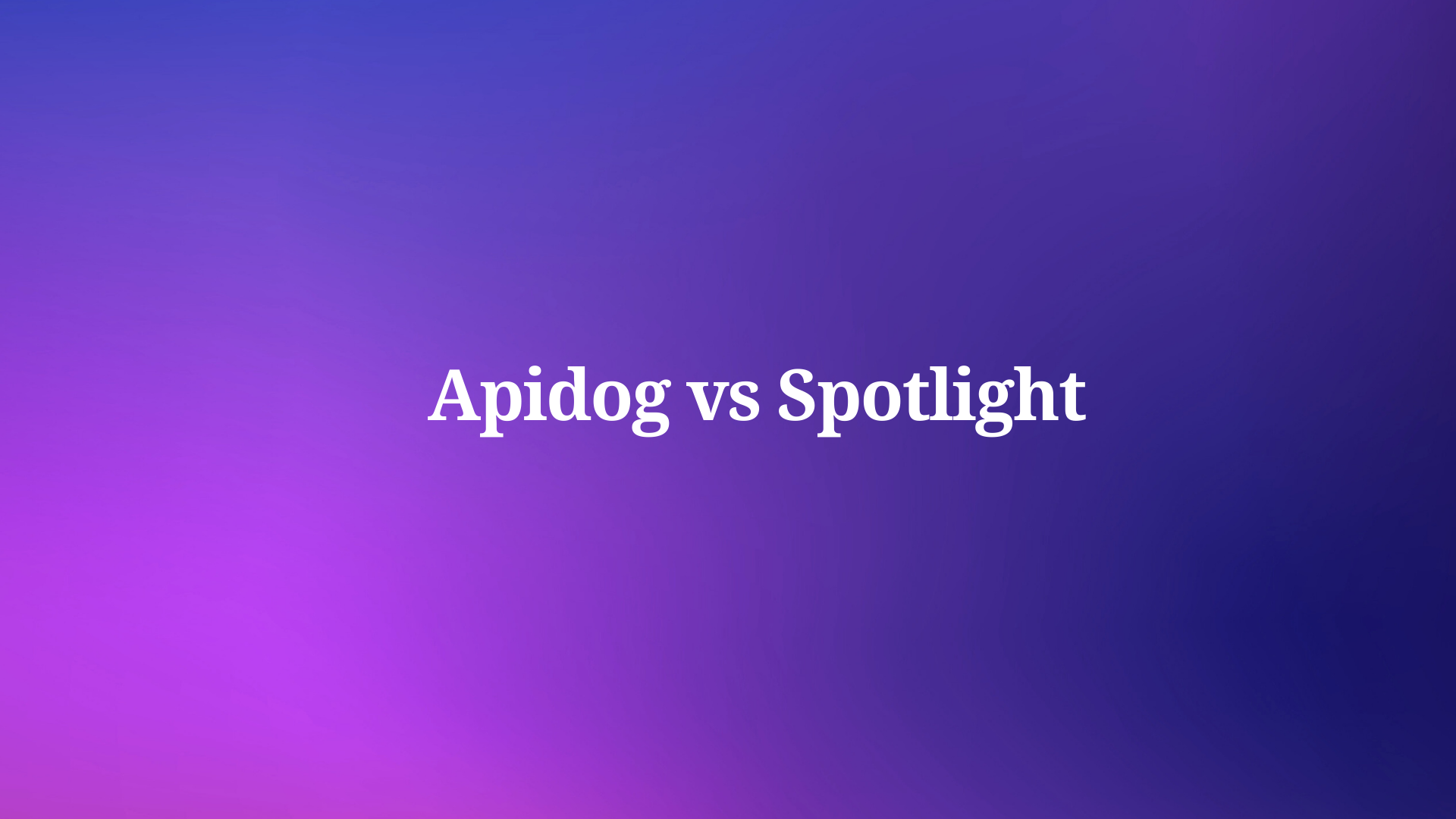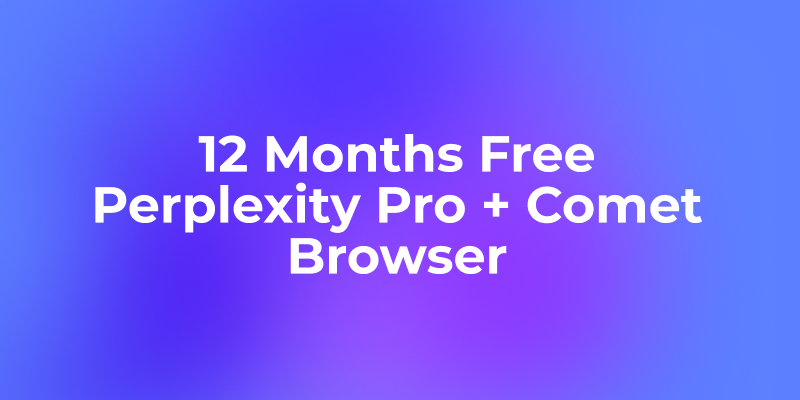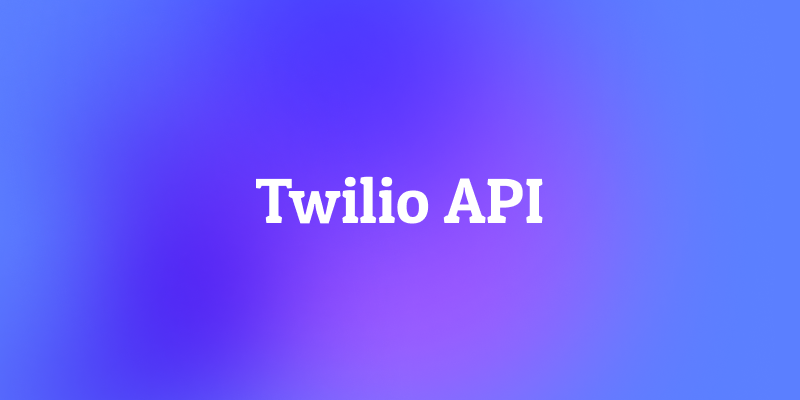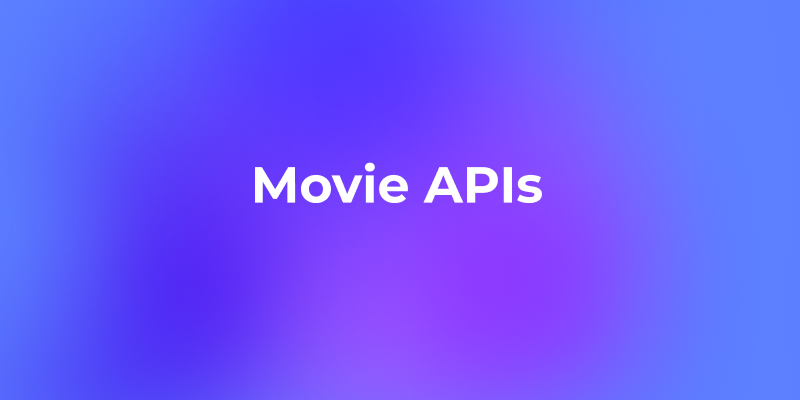Modern development teams require robust API design platforms that streamline workflows while maintaining technical excellence. The choice between comprehensive testing suites and specialized design tools significantly impacts team productivity and project success rates.
Both Apidog and Spotlight represent distinct approaches to API development challenges. Understanding their core differentiators enables teams to make informed decisions based on specific technical requirements and organizational constraints.
Understanding the Fundamental Architecture Differences
Apidog's Integrated Testing Philosophy
Apidog positions itself as an all-in-one API development platform that consolidates design, testing, and documentation functionalities. This approach eliminates context switching between multiple tools, thereby reducing cognitive overhead for development teams. The platform's architecture supports real-time collaboration while maintaining version control integration across the entire API lifecycle.
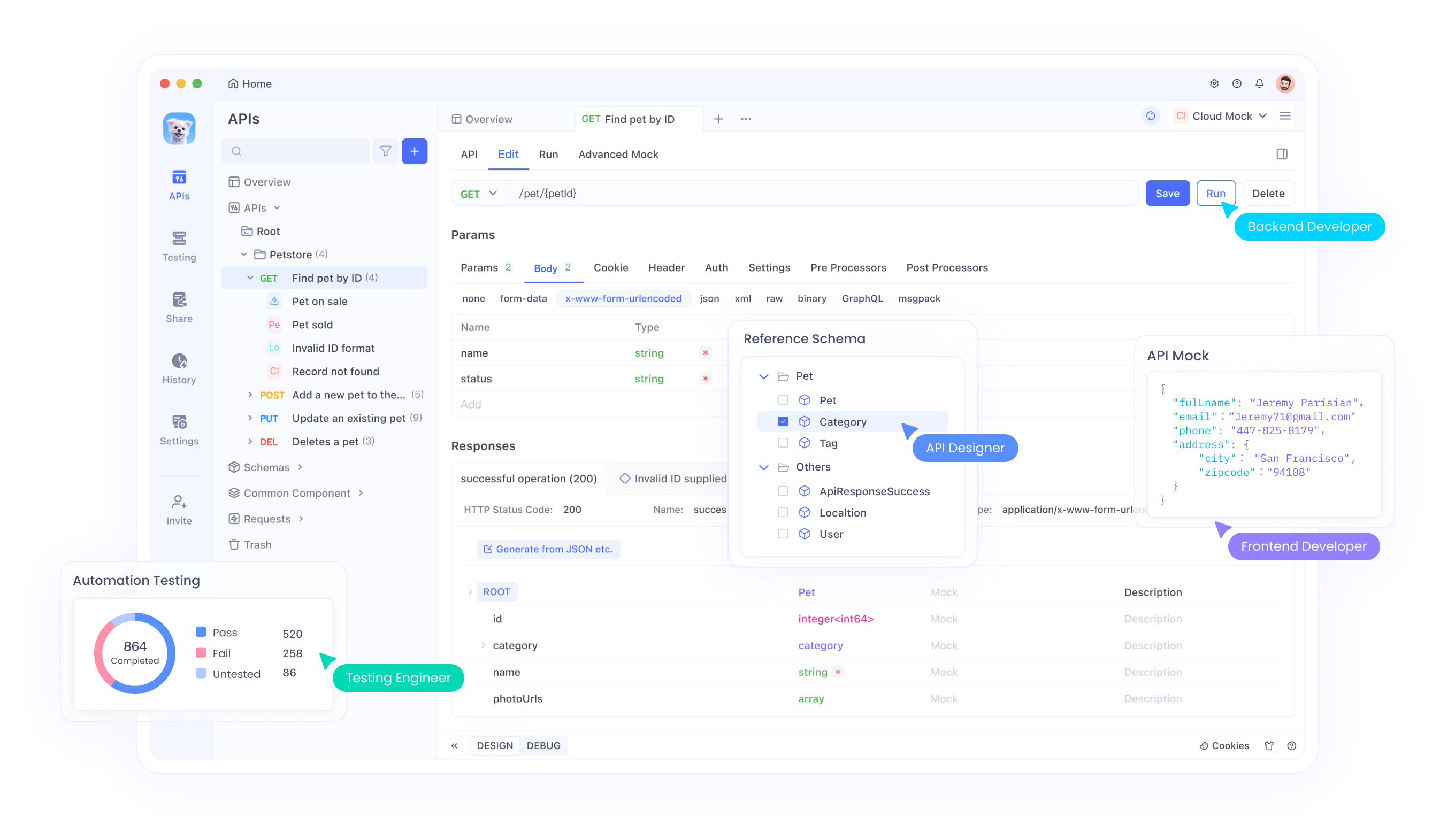
The technical foundation of Apidog emphasizes automated testing workflows that integrate seamlessly with continuous integration pipelines. Teams can leverage feature-rich API testing clients that focus on automation and collaboration, enabling faster development cycles and improved error detection rates.
Spotlight's Design-First Methodology
Spotlight takes a fundamentally different approach by prioritizing API design before implementation. The platform enables users to create OpenAPI descriptions, documentation, and mock servers much faster than other API tools — with no specialized knowledge required. This design-first philosophy ensures API consistency and reduces downstream development issues.

The architectural decision to focus on OpenAPI specifications creates a standardized foundation that benefits both internal development teams and external API consumers. Spotlight's visual design interface abstracts complex specification syntax, making API design accessible to non-technical stakeholders while maintaining technical rigor.
Core Feature Analysis and Technical Capabilities
Testing and Validation Frameworks
Apidog excels in comprehensive testing scenarios through its integrated testing framework. The platform supports automated test generation, environment management, and assertion libraries that cover edge cases often missed in manual testing processes. Furthermore, the testing suite includes performance benchmarking tools that identify bottlenecks before production deployment.
The platform's scripting capabilities allow developers to implement complex testing logic using JavaScript, enabling custom validation rules and data manipulation. This flexibility proves essential when testing APIs with dynamic responses or complex authentication flows.
Conversely, Spotlight approaches validation through design-time verification. The platform validates designs with request and response validation, enabling teams to get early feedback from internal and external stakeholders using customizable mock servers. This approach catches design inconsistencies before implementation begins, reducing development time and preventing architectural debt.
Documentation Generation and Management
Both platforms recognize documentation as a critical component of API success, yet they implement different strategies for documentation generation and maintenance.
Apidog automatically generates documentation from test cases and API specifications, ensuring documentation accuracy matches actual implementation behavior. The platform's documentation system supports real-time updates, meaning changes to API implementations immediately reflect in documentation. This synchronization prevents the common problem of outdated documentation that plagues many development teams.
Meanwhile, Spotlight emphasizes collaborative documentation creation through its integrated markdown editor and publishing platform. Studio includes a built-in Markdown editor, image manager, and the ability to publish documentation to Stoplight's documentation platform. Teams can host documentation files in their own Git repositories while maintaining professional presentation standards.
Collaboration and Team Management Features
Modern API development requires effective team collaboration mechanisms that support distributed development models. Apidog implements real-time collaboration through shared workspaces, comment systems, and role-based access controls. The platform's collaboration features extend to test case sharing and collective debugging sessions, fostering knowledge transfer within development teams.
Spotlight's collaboration model centers around design reviews and stakeholder feedback loops. The platform enables non-technical stakeholders to participate in API design discussions through intuitive visual interfaces. This inclusive approach reduces miscommunication between business requirements and technical implementation.
Performance and Scalability Considerations
Resource Utilization and System Requirements
Technical teams must consider platform performance when selecting tools for high-volume API development. Apidog's comprehensive feature set requires substantial system resources, particularly when executing complex test suites or managing large API collections. However, the platform's local execution capabilities reduce dependency on internet connectivity, enabling offline development scenarios.
Spotlight's web-based architecture distributes computational load across cloud infrastructure, resulting in consistent performance regardless of local system specifications. This approach benefits teams with heterogeneous development environments but requires stable internet connectivity for optimal performance.
Enterprise Scalability and Integration
Enterprise adoption requires platforms that scale effectively with organizational growth. Apidog supports enterprise deployment through on-premises installations and private cloud configurations. The platform's API enables custom integrations with existing development toolchains, including CI/CD pipelines, monitoring systems, and project management platforms.
Spotlight's SaaS model provides automatic scaling without infrastructure management overhead. The platform supports teams working with one or 1,000 APIs, making sharing APIs, tracking changes, managing dependencies, and using style guides straightforward. This scalability model particularly benefits organizations with fluctuating API development volumes.
Economic Analysis and Total Cost of Ownership
Licensing Models and Pricing Structures
Cost considerations significantly influence platform selection decisions, especially for budget-conscious development teams. Apidog offers a freemium model that provides substantial functionality without financial commitment, making it accessible for small teams and individual developers. The paid tiers unlock advanced features like team collaboration, enterprise integrations, and priority support.
Spotlight's pricing structure reflects its position as an enterprise-focused platform. The platform offers various pricing plans tailored to API governance, lifecycle management, design, and documentation needs. While the initial cost may be higher than alternatives, the platform's focus on reducing development cycle time can provide positive return on investment for established teams.
Hidden Costs and Implementation Overhead
Beyond licensing fees, teams must consider implementation and training costs. Apidog's comprehensive feature set requires significant learning investment, particularly for teams transitioning from simpler testing tools. However, the platform's unified approach eliminates the need for multiple specialized tools, potentially reducing overall software licensing costs.
Spotlight's learning curve is generally less steep due to its focus on visual design interfaces. Nevertheless, teams must invest time in establishing design standards and governance processes to maximize platform benefits. The potential for reduced development rework often justifies this initial investment.
Integration Ecosystem and Third-Party Compatibility
Development Tool Integration
Modern development workflows depend on seamless integration between various tools and platforms. Apidog provides extensive integration options with popular development tools, including Git repositories, continuous integration systems, and monitoring platforms. The platform's REST API enables custom integrations for specialized workflows.
Spotlight excels in OpenAPI ecosystem integration, supporting import and export with numerous API design tools. The platform's Elements framework enables embedding interactive API documentation in existing websites and applications, extending API visibility beyond traditional documentation portals.
Version Control and Change Management
Effective version control becomes critical as API complexity increases. Apidog implements project-based version control that tracks changes across test cases, environments, and configurations. The platform's branching support enables parallel development streams while maintaining test suite integrity.
Spotlight's Git-native approach provides familiar version control workflows for development teams. Changes to API designs automatically sync with repository commits, ensuring design evolution remains traceable and auditable.
Security and Compliance Framework
Authentication and Authorization
Security considerations influence platform selection for organizations handling sensitive data or operating in regulated industries. Apidog implements enterprise-grade security measures, including encrypted data transmission, role-based access controls, and audit logging capabilities. The platform supports various authentication mechanisms, including SSO integration and multi-factor authentication.
Spotlight's cloud-based architecture incorporates enterprise security standards, including data encryption, regular security audits, and compliance certifications. The platform's design-first approach reduces security vulnerabilities by identifying potential issues during specification creation rather than post-implementation.
Data Privacy and Regulatory Compliance
Compliance requirements vary significantly across industries and geographical regions. Apidog's on-premises deployment options provide complete data control for organizations with strict privacy requirements. The platform's audit trails support compliance reporting and regulatory documentation needs.
Spotlight addresses compliance through secure cloud infrastructure and data processing agreements that align with major regulatory frameworks. The platform's documentation capabilities support compliance evidence collection and regulatory reporting requirements.
Technical Support and Community Resources
Documentation and Learning Resources
Platform adoption success depends heavily on available learning resources and technical support quality. Apidog maintains comprehensive documentation that covers basic usage through advanced scripting scenarios. The platform's community forum provides peer support and knowledge sharing opportunities.
Spotlight offers extensive documentation resources, including video tutorials, API reference guides, and best practice recommendations. The platform provides various options for working with projects, including creating projects from scratch or connecting to Git repositories, accommodating different team preferences and workflows.
Professional Support Services
Enterprise deployments often require dedicated support services beyond standard documentation. Apidog provides tiered support options, including priority response times and dedicated account management for enterprise customers. The platform's support team includes API testing specialists who understand complex implementation challenges.
Spotlight's support model emphasizes customer success through onboarding services and ongoing consultation. The platform's focus on design methodology includes training services that help teams establish effective API governance practices.
Comprehensive Feature Comparison Table
The following table provides a detailed side-by-side comparison of Apidog and Spotlight across key technical and business dimensions:
| Feature Category | Apidog | Spotlight |
|---|---|---|
| Core Approach | All-in-one testing & development platform | Design-first OpenAPI specification |
| Primary Use Case | API testing, automation, documentation | API design, documentation, mocking |
| Testing Capabilities | Advanced automated testing, scripting, performance benchmarking | Basic validation through mock servers |
| Documentation | Auto-generated from tests, real-time sync | Collaborative markdown editor, Git integration |
| Visual Design Interface | Test-focused UI with collection management | Visual OpenAPI specification builder |
| Collaboration Features | Real-time workspace sharing, comment systems | Design reviews, stakeholder feedback loops |
| Version Control | Project-based versioning, branching support | Git-native approach, automatic sync |
| Deployment Options | Cloud, on-premises, private cloud | SaaS-based with cloud infrastructure |
| Pricing Model | Freemium with generous free tier | Enterprise-focused tiered pricing |
| Learning Curve | Moderate to steep (comprehensive features) | Gentle (visual interface focused) |
| Integration Ecosystem | Extensive CI/CD, monitoring, development tools | OpenAPI ecosystem, Elements framework |
| Mock Server Capabilities | Basic mocking for testing purposes | Advanced mock servers with customization |
| API Specification Support | OpenAPI, Swagger, Postman collections | OpenAPI 3.0 native, comprehensive support |
| Team Size Optimization | Small to medium teams (unified approach) | Large teams with specialized roles |
| Performance Testing | Built-in load testing and benchmarking | Limited performance validation |
| Security Features | Enterprise-grade, SSO, audit logging | Cloud security, compliance certifications |
| Offline Capabilities | Full offline functionality | Requires internet connectivity |
| Code Generation | Limited code generation features | Strong OpenAPI-based code generation |
| Stakeholder Involvement | Developer and QA focused | Business stakeholders, non-technical users |
| Enterprise Features | Role-based access, team management | Advanced governance, style guides |
| Support Options | Community forum, tiered support | Professional services, customer success |
This comparison reveals that Apidog excels in comprehensive testing scenarios and unified development workflows, while Spotlight specializes in design-first methodologies and stakeholder collaboration. Teams should prioritize features that align with their specific development processes and organizational structure.
Conclusion
The choice between Apidog and Spotlight ultimately depends on organizational priorities, team structure, and technical requirements. Apidog provides comprehensive testing capabilities ideal for teams requiring integrated development workflows, while Spotlight excels in design-first methodologies that prioritize specification accuracy and stakeholder collaboration.
Teams should evaluate both platforms against their specific use cases, considering factors such as existing tool integration, team skill sets, and long-term strategic objectives. The substantial differences between these approaches mean that the optimal choice varies significantly across organizations and project contexts.
